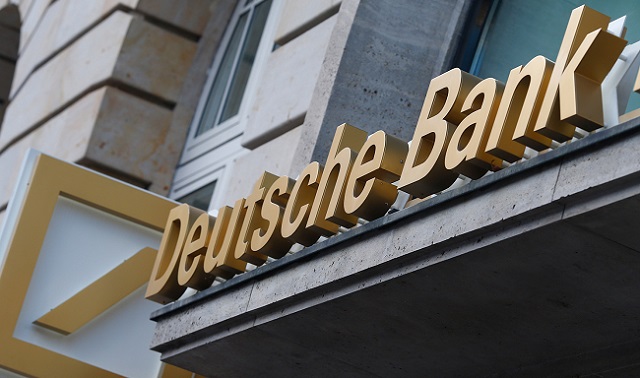
Rome, Italy | Xinhua | European banks are better prepared than those elsewhere in the world for crises such as the failure of two regional banks in the United States (U.S.) earlier this month. However, analysts say they remain vulnerable to changes in consumer confidence, and weaknesses in the financial sector.
German banking giant Deutsche Bank is the latest European institution to come under pressure. The bank’s share lost nearly a quarter of its value in March, as investors were worried about its vulnerability to outside shocks.
The sector as a whole has been feeling the pain: after the last trading session of the month on Friday, the STOXX Europe 600 banking stock index was down more than 13 percent.
“The deepest roots of this crisis are related to investor confidence,” said Lorenzo Forni, a professor of economic policy from Italy’s University of Padua.
In an interview with Xinhua, Forni pointed to the work of the winners of last year’s Nobel Prize in Economics, economists Douglas Diamond and Philip Dybvig.
“You can have strong fundamentals, but the point of the Nobel Prize research is that when it comes to bank runs there is a multiplicity of equilibria … that is a reason why it’s so difficult to predict a financial crisis.”
Forni said the surest way to stave off a crisis is to reinforce investor confidence.
“A bank’s balance sheet may have liquidity issues or solvency issues and if it’s possible to see it coming — sometimes it’s not, because these things change very quickly — the bank needs to act to boost confidence. They need to find an investor with a good reputation to put some money in. The bank also has to be transparent.”
Earlier in March, Swiss banker UBS took over troubled rival Credit Suisse after that bank became the first European institution to be hit hard by the banking crisis. In the U.S., where the latest crisis began after the failure of Silicon Valley Bank and Signature Bank, a group of large lenders banded together to temporarily deposit 30 billion U.S. dollars in First Republic Bank.
“What we are seeing now isn’t strictly a crisis. It’s like a grouping of different crises, syncretic events. The Silicon Valley Bank case is different to Credit Suisse, which is different from what worries investors about Deutsche Bank,” Lorenzo Codogno, chief economist of LC Macro Investors Ltd., told Xinhua.
“The element in common is that the turning of the interest rate cycle creates more fragility, and that creates all kinds of difficult cases and vulnerabilities,” Codogno said.
Forni and Codogno both agreed that tighter scrutiny and reforms over the last 15 years have left European banks in a stronger position than they were during the 2008-09 crisis, and better off than most other parts of the global banking system. However, Codogno warned that this would not keep the sector safe from related parts of financial markets.
“The insurance sector, for example, is not as regulated as banks are, nor are private equity or venture capital sectors, which are by definition highly leveraged sectors,” Codogno said. “We could also see trouble from mortgage-backed securities if we see a decline in the housing markets in some countries. Finally, I personally believe that crypto is a very dangerous place for the world.”
“So again, the next crisis probably won’t come from the banking sector, but in my view, it could still come from somewhere else and impact the banking sector,” he said.
 The Independent Uganda: You get the Truth we Pay the Price
The Independent Uganda: You get the Truth we Pay the Price





